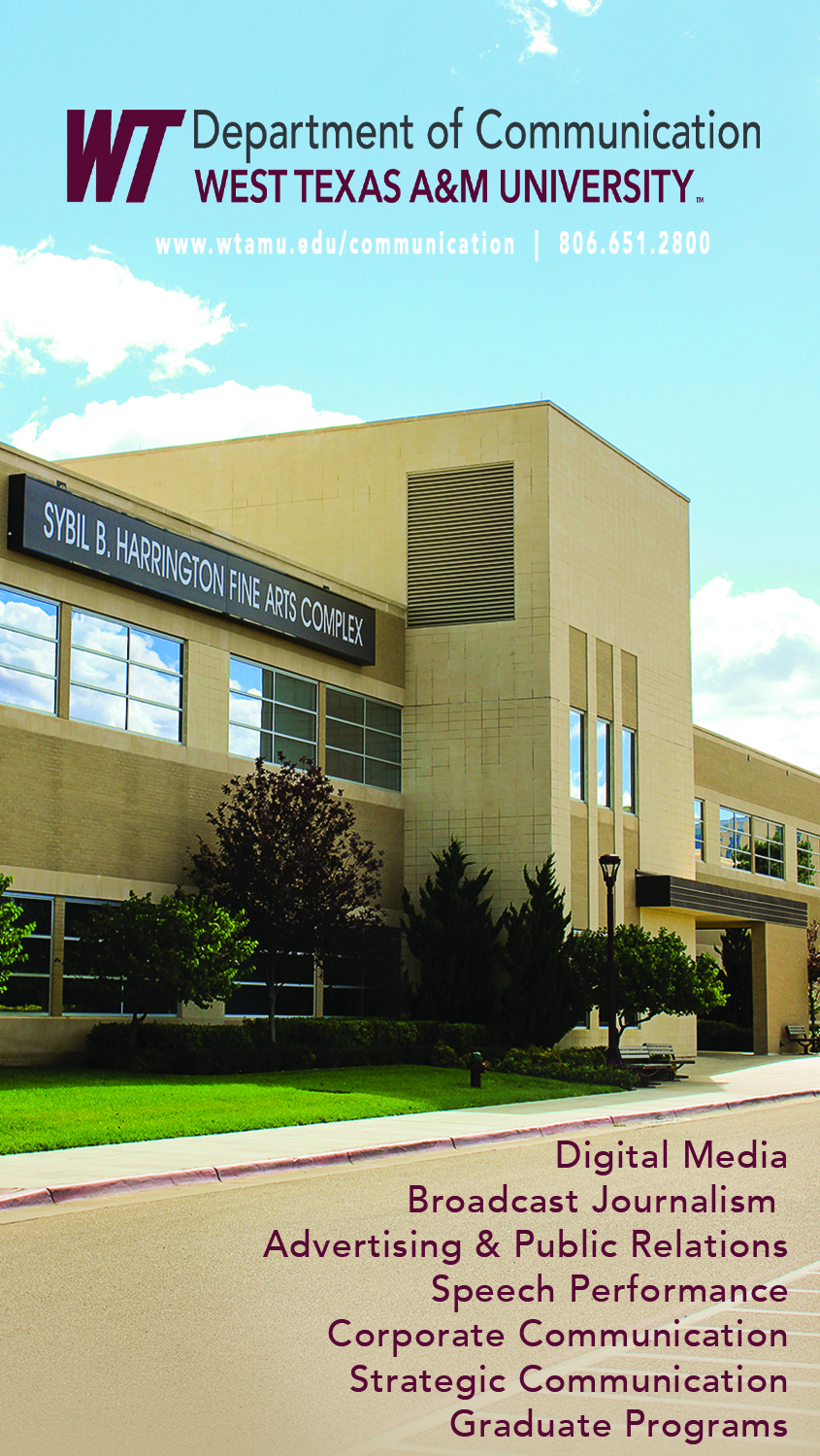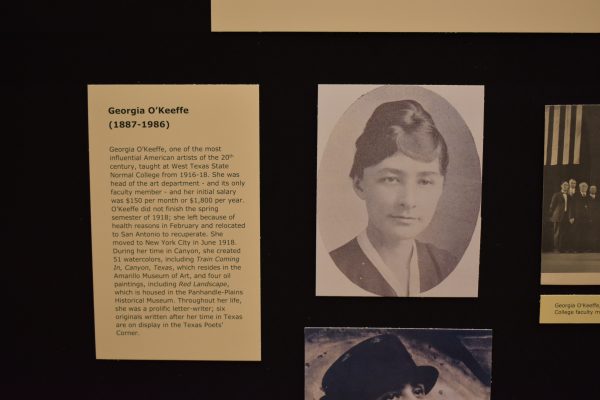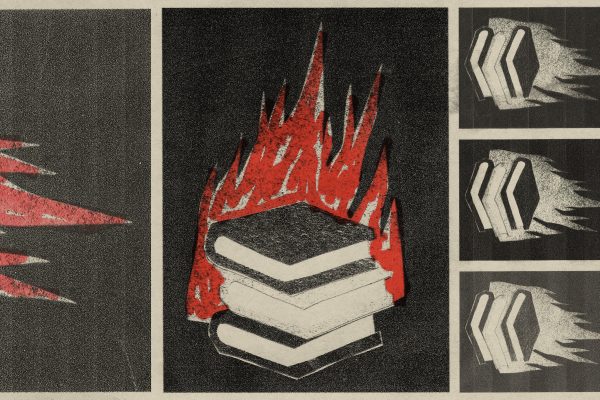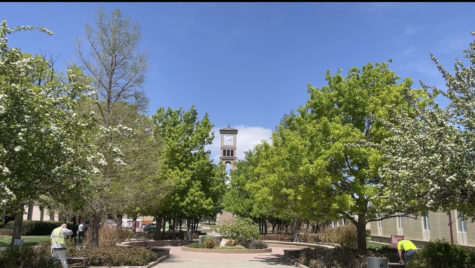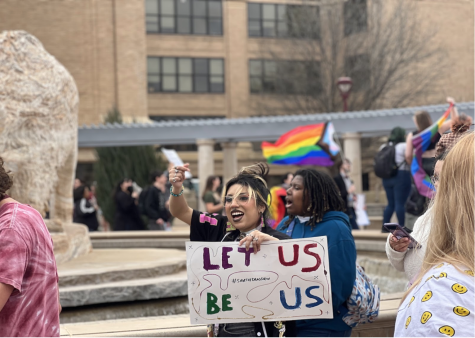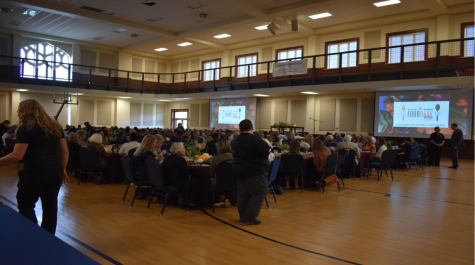Town Hall Meetings Address Campus Concealed Carry
November 2, 2015
Beginning next fall, individuals who have a concealed handgun license (CHL) will be allowed to bring their firearms onto the campuses of West Texas A&M University.
To facilitate the implementation of Senate Bill 11, representatives of the WTAMU Campus Concealed Carry Task Force hosted a series of town hall meetings to outline the proposed plan to accommodate the new law.
Led by the Vice President of Student Affairs, Michael J. Knox, each of the three town hall meetings allowed for a question and answer session after the official presentation of the slide show, which broke down the most addressed issues of the law.
Signed into law by Governor Gregg Abbott, Senate Bill 11 will extend the boundaries where concealed handguns are allowed, making most buildings on campus accessible to faculty, students and staff who hold a CHL and wish to have their firearms on their person.
“The purpose of these forums is to gather feedback and information from our campus community, faculty, staff and students to give our committee feedback as we write a d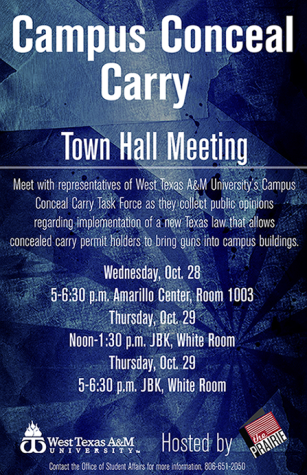 raft of our rules that we will present to the president on November 15th,” Knox said.
raft of our rules that we will present to the president on November 15th,” Knox said.
While the law allows for concealed carry, some exceptions to the law have been made designating certain areas as gun-free zones. Prohibited places, as outlined by state law, include areas in which high school, collegiate or professional sporting events are taking place as well as qualified hospitals.
Knox also stressed that concealed carry does not necessarily mean open carry.
“There is a difference between concealed carry and open carry,” Knox said. “Open carry did pass the legislature as well, but that law does not cover college campuses, so you cannot open carry on a college campus. That means that if you see a weapon on campus, the right thing to do would be to call the police.”
Concealed carry has existed in Texas since 1995, and this specific law granted license holders who wished to conceal carry on campus the right to do so, but not in the buildings themselves.
The town hall meetings allowed for some clarification as to how it would affect campus life, and it also left some students feeling confident in the choices the university presented.
“I think that the caution and the steps being taken by the university to insure everyone’s safety are good,” Andrew Alexander, junior Mass Communications major, said. “At the same time, I feel that the possibility of some areas being banned is not a good idea. I do feel that some who have major concerns feel this way because they aren’t really 2nd Amendment supporters in general and they are, for some strange reason, frightened by the idea of people having concealed carries on campus.”
Major concerns of those present at the meetings were focused around the storage of firearms on campus, how transitional spaces would be marked when going to and from gun-free zones and also procedures involving an active shooter on campus.
Some students who take issue with Senate Bill 11 have concerns rooted in the unknown.
“I am completely comfortable being around weapons,” Matt Downey, senior Political Science major, said. “But not knowing who [carries] makes me uneasy. I realize I am in the minority opinion, but my biggest objection is just them being in an academic environment. I am a supporter of the 2nd Amendment, but guns have no place at school.”
The task force has from now until Nov. 15th, when they will present their suggestions to President J. Patrick O’Brien, to hear any concerns with the new law. The Board of Regents will review rule implementation at some point between April and July of 2016 for Senate Bill 11, which is scheduled to take effect Aug. 1, 2016.
For more information regarding Senate Bill 11 and its impact on campus, visit www.wtamu.edu/concealedcarry or email Vice President Knox at [email protected].



